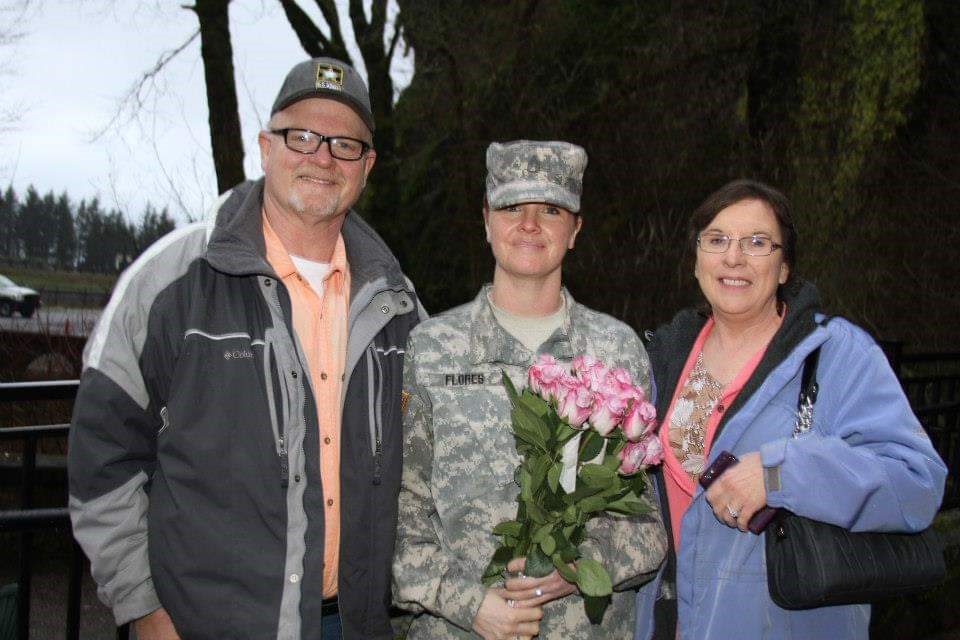Veterans serve Lone Star community as blood donors and Carter BloodCare employees
Veterans Day on Friday, Nov. 11, is a time to recognize all U.S. military veterans for their service to our country.
There is a great deal of thanks to give: According to the U.S. Census Bureau, there were 16.5 million veterans in the United States in 2021. Of those, more than 49% (8.1 million) were 65 or older, while about 8% (1.35 million) were younger than 35.
Those who served during the Vietnam War era comprise 34.2% (5.65 million) of U.S. veterans, along with 25% (4.06 million) who served after 2001 and 24% (3.92 million) who served between 1990 and 2001. There are also 805,000 U.S. veterans of the Korean War and 182,000 surviving U.S. veterans of World War II.
The military men and women who serve and protect the United States come from all walks of life. They are parents, grandparents, siblings, friends, neighbors and coworkers.
Carter BloodCare is proud to have more than 35 military veterans on our team. In their various roles across the organization, veterans continue their record of outstanding service as stewards of community health and well-being.
Kandy Flores is one strong example. After 23 years in the military, the retired U.S. Army First Sergeant now serves Texans in need as Special Programs Coordinator with Carter BloodCare.

Service to country and community runs in her family’s veins.
Her father and her husband are both U.S. Army veterans and blood donors with Carter BloodCare. Kandy’s son is a veteran of the U.S. Army and works at Carter BloodCare’s Tyler Donor Center. Her mother and daughter – who wants to work with Carter BloodCare after graduation – are blood donors.
Kandy noted that her brother is also a U.S. Army veteran who retired after serving for more than 20 years.
“My entire family knows the importance of selfless service and paying it forward,” she said.
Kandy saw the critical need for blood first-hand during more than two decades in the military.
“When I was deployed to Baghdad, Iraq from 2006 to 2007, there were multiple times that we were asked to set our dental clinic to use as a blood donation site during critical need on the battlefield,” she said. “I have a clear understanding now of how incredibly important it is to have the blood available before it is needed.”
She and her family also have gratitude for a key step in Carter BloodCare’s donation experience: the donor health check.
“We appreciate the free medical pre-screening process that takes place before blood donation. It’s a great resource to gauge that our bodies are in top-notch shape to even be considered to donate the lifesaving gift of blood,” Kandy said.
“It is great to know that our bodies are properly regenerating the blood after our donation, as well,” she added. “We love getting our temperature, blood pressure and hemoglobin levels checked before the donation, and getting the results of our cholesterol after the donation.”
Many who served in the military live, work and attend school in Texas. In fact, the U.S. Census Bureau recorded more than 1.4 million veterans lived in Texas in 2021, the most of any state.
With such a great number of veterans locally, donating blood “is an incredible opportunity for people to give back in honor of those who made the sacrifice to serve our country,” Kandy said.
A revision in donor eligibility over the summer presents an opportunity for many veterans, too.
For years, U.S. Food and Drug Administration restrictions were in place, based on possible risk of variant Creutzfeldt-Jakob disease (vCJD), commonly known as mad cow disease. The rare disease was first identified in the UK in 1985 before subsequently spreading worldwide. FDA guidelines restricting donors stationed in Europe began in 1999.
The deferrals prevented an estimated 4.4 million veterans, service members and Defense Department civilians from donating blood, according to the U.S. Department of Veterans Affairs.
In May 2022, however, the FDA updated its eligibility guidelines for donors who had lived overseas.
“A lot of veterans and their family members who were previously deferred when attempting to donate may now be eligible. But, they may be unaware of these changes,” Kandy said. “There are many more potential donors out there and they don’t even know they are now eligible to donate blood. Getting this information out there is important.”
She emphasized that making consistent donations a habit is equally important.
“Blood cannot be created in a lab,” Kandy said, “so we make it a priority to donate to save lives.”
Join Kandy, her family and so many others who continue to serve the community as blood, platelet and plasma donors. To schedule an appointment to give back and save lives, call Carter BloodCare at 800-366-2834 or visit CarterBloodCare.org and click the Donate Now tab.

